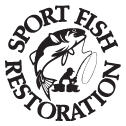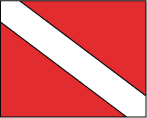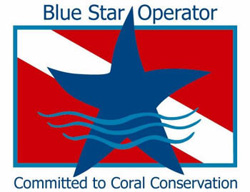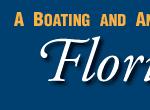CONTACT US:
Florida Fish and Wildlife
Conservation Commission
Fish and Wildlife
Research Institute
100 Eighth Avenue SE
St. Petersburg, Florida 33701
727-896-8626
|
|
|
Mote Marine Laboratory
Tropical Research Laboratory
24244 Overseas Hwy.
Summerland Key, FL 33042
305-745-2729
|
|
|

|
|
This project was funded in part by a grant awarded from Mote Marine Laboratory's Protect Our Reefs Grants Program, which is funded by proceeds from the sale of the Protect Our Reefs specialty license plate. Learn more at .
|

|
|
Additional funding for this project was obtained through the Federal Aid in Sport Fish Restoration Fund.
|
|
|
 |
Tips for Divers and Snorkelers
There is a wealth of information available about diving in the Florida Keys. Below are some tips for divers and snorkelers that will help them experience the underwater world with as little damage to the environment as possible.
- Before booking a reef trip, check weather conditions; it's best not to go out in rough seas. Poor visibility, strong winds, and waves reduce safe interaction at the reef. Make sure your captain has filed a float plan.
- Do not touch coral! Even the lightest touch with hands or equipment can damage sensitive coral polyps. Snorkelers should wear an inflatable snorkel vest to allow gear adjustment without standing on the coral. Never stand on coral!
- To avoid contact with the ocean bottom, divers should only use the weight needed and practice proper buoyancy control. Areas that appear empty may support new growth if left undisturbed.
- Avoid wearing gloves and touching or collecting marine life. Most tropical fish captured die within a year. Some species, such as queen conch and cushion sea star are protected, and cannot be taken.
- Resist the temptation to feed fish, seabirds and marine mammals; it changes their natural behavior and diet.
- Remember, it's illegal to take coral in Florida and buying it at local shops only depletes reefs elsewhere in the world.
- Bring back any trash you find and recycle it, if possible.
- Snorkel aware, dive with care!
- If you are out snorkeling or diving and see anything that may be unusual or out of the ordinary (including lionfish), please record the location, date, and time, and contact the Marine Ecosystem Event Response and Assessment (MEERA) project. They can be reached by phone (305-395-8730), e-mail, or online.
|
DIVER DOWN FLAG
It is required by law to display this flag when divers are in the water. Boaters in the vicinity of a vessel displaying the diver down flag must give 100' clearance within rivers, inlets, or navigation channels or 300' clearance in all waterways other than rivers, inlets, or navigation channels. A flag displayed on a vessel must be 20" by 24" or larger. Flags attached to a buoy or float must be 12" by 12" or larger. A stiffener is also required to keep the flag unfurled.
|

|
BLUE STAR
Blue Star is a program established by the Florida Keys National Marine Sanctuary to reduce the impact of divers and snorkelers on the coral reef ecosystem of the Florida Keys. It is a voluntary recognition program saluting charter boat operators who promote responsible and sustainable diving and snorkeling practices, helping keep the reef healthy for generations to come. Blue Star operators are committed to responsible tourism and go the extra step to educate their customers about the coral reef ecosystem, the Florida Keys National Marine Sanctuary, and diving and snorkeling etiquette.
|

|
For more information about the Blue Star Program, visit the Florida Keys National Marine Sanctuary, Blue Star Program.
The following is a list of Blue Star recognized charters in the Florida Keys:
- Amy Slate's Amoray Dive Resort, Key Largo
- Dive Key West, Inc., Key West
- Horizon Divers, Key Largo
- John Pennekamp State Park, Key Largo
- Keys Diver and Snorkel Center, Key Largo
- Rainbow Reef Dive Center, Key Largo
- Silent World, Key Largo
- Spree Expeditions, Inc., Key West/Dry Tortugas
|
FLORIDA KEYS NATIONAL MARINE SANCTUARY SHIPWRECK TRAIL
|

|
Are you looking for a place to go diving or snorkeling while in the Florida Keys? Try the FKNMS Shipwreck Trail. There are nine sites on the Shipwreck Trail that represent three broad periods of Keys maritime history: European Colonial, American and Modern. For each of the nine Shipwreck Trail sites there is an underwater site guide available which provides the shipwreck and mooring buoy positions, history, a site map, and identifies marine life you can expect to see. Conditions on the Shipwreck Trail sites vary from easy dives in shallow water to deeper dives of l00 feet or more where swift currents may be encountered. Some of the deeper sites require mooring to submerged buoys. Diving and snorkeling charters, underwater site guides, and additional information on the conditions for each site are available from local dive shops or from the FKNMS' Shipwreck Trail Web site.
|
|
|
If you are out snorkeling, diving, fishing, paddling, or boating and see anything that may be unusual or out of the ordinary (including lionfish) in the waters around the Keys , please record the location, date, and time, and contact the Marine Ecosystem Event Response and Assessment (MEERA) project. They can be reached by phone (305-395-8730), e-mail, or online.
If you have any questions, comments, or suggestions about this Web site, please e-mail us at Boating_Guides@MyFWC.com.
Would you like to receive notices of changes to this Web site and the Boating and Angling Guides to the Upper, Middle, or Lower Keys? If so, please e-mail us and include SUBSCRIBE-KEYS in the subject line.
|


























